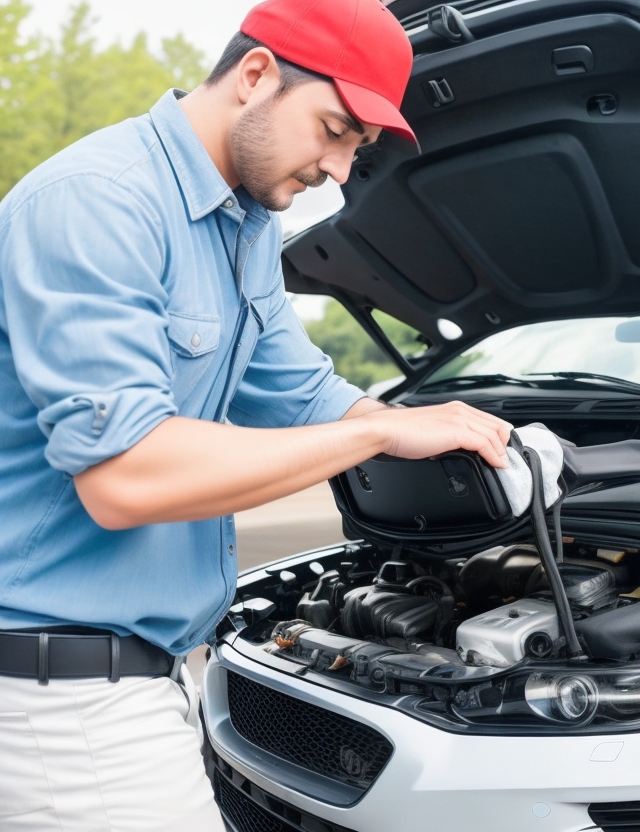Welcome to belladoba.com! Proper car maintenance is crucial for ensuring your vehicle runs smoothly and efficiently for years to come. Regular upkeep not only extends the life of your car but also helps you avoid costly repairs down the line. Here are some essential tips for maintaining your car.
1. Regular Oil Changes
One of the most important aspects of car maintenance is changing the oil regularly. Engine oil lubricates the moving parts of your engine, reducing friction and preventing overheating. Over time, oil can break down and become contaminated with dirt and debris, which can cause engine damage.
How Often Should You Change the Oil?
While many modern cars can go longer between oil changes, it’s generally recommended to change your oil every 5,000 to 7,500 miles. However, always refer to your owner’s manual for the manufacturer’s recommendations.
2. Check and Replace Air Filters
Air filters prevent dirt, dust, and debris from entering your engine. A clogged air filter can reduce engine performance and fuel efficiency.
When to Replace Air Filters?
Typically, air filters should be checked every 12,000 to 15,000 miles and replaced if they appear dirty. Driving in dusty or polluted environments may require more frequent replacements.
3. Inspect and Maintain Tires
Properly maintained tires are essential for safe driving. Regularly checking your tire pressure, alignment, and tread depth can prevent accidents and improve fuel efficiency.
Tire Maintenance Tips
- Tire Pressure: Check your tire pressure monthly and keep it at the recommended levels specified in your owner’s manual.
- Tread Depth: Ensure your tires have sufficient tread depth (at least 2/32 of an inch) to provide adequate traction.
- Alignment and Rotation: Have your tires aligned and rotated every 5,000 to 7,500 miles to promote even wear.
4. Monitor Fluid Levels
Your car relies on various fluids to operate correctly. Regularly checking and maintaining these fluids can prevent breakdowns and extend the life of your vehicle.
Essential Fluids to Monitor
- Engine Oil: Check the level and quality of your engine oil regularly.
- Coolant: Ensure your coolant levels are adequate to prevent overheating.
- Brake Fluid: Check brake fluid levels and top up if necessary.
- Transmission Fluid: Inspect the transmission fluid regularly to ensure smooth shifting.
- Power Steering Fluid: Check the power steering fluid to ensure responsive handling.
5. Maintain the Battery
A well-maintained battery ensures your car starts reliably. Corrosion and loose connections can cause battery failure.
Battery Maintenance Tips
- Clean Terminals: Regularly clean the battery terminals to prevent corrosion.
- Check Connections: Ensure the battery connections are tight and secure.
- Test Battery: Have your battery tested annually to check its health and replace it if necessary.
6. Replace Worn Brake Pads
Brakes are a critical safety feature of your car. Worn brake pads can reduce braking efficiency and increase stopping distances.
When to Replace Brake Pads?
Brake pads should be inspected every 10,000 to 20,000 miles and replaced if they are less than 1/4 inch thick. Squeaking or grinding noises when braking can also indicate that it’s time for a replacement.
7. Keep Your Car Clean
Regularly washing and waxing your car can protect the paint and prevent rust. Clean the interior to maintain a pleasant driving environment and prolong the life of your upholstery.
Car Cleaning Tips
- Wash: Wash your car regularly to remove dirt, grime, and road salt.
- Wax: Apply wax every few months to protect the paint and give your car a shiny finish.
- Interior: Vacuum and clean the interior regularly to remove dust and debris.
8. Pay Attention to Warning Lights
Modern cars are equipped with various sensors and warning lights to alert you to potential issues. Never ignore these warning lights, as they can indicate serious problems that need immediate attention.
Common Warning Lights
- Check Engine Light: Indicates a variety of potential engine problems.
- Oil Pressure Light: Signals low oil pressure, which can damage the engine.
- Brake Warning Light: Indicates a problem with the braking system.
- Battery Light: Alerts you to issues with the charging system.
9. Follow the Manufacturer’s Maintenance Schedule
Your car’s manufacturer provides a maintenance schedule that outlines when specific services should be performed. Adhering to this schedule ensures your car receives the necessary care at the right intervals.
Benefits of Following the Maintenance Schedule
- Reliability: Regular maintenance reduces the likelihood of unexpected breakdowns.
- Resale Value: A well-maintained car retains its value better than one with neglected upkeep.
- Safety: Ensures all safety-related components are in optimal condition.
10. Use Quality Parts and Fluids
When replacing parts or topping up fluids, always use high-quality products that meet the manufacturer’s specifications. Cheap or incorrect parts can cause more harm than good.
Why Quality Matters
- Longevity: Quality parts and fluids last longer and perform better.
- Compatibility: Ensure compatibility with your car’s make and model.
- Performance: Maintain optimal performance and efficiency.
Conclusion
Regular car maintenance is essential for keeping your vehicle in top condition and ensuring your safety on the road. By following these essential tips, you can extend the life of your car, avoid costly repairs, and enjoy a smooth and reliable driving experience. For more car care advice and services, visit belladoba.com. Happy driving!

No responses yet